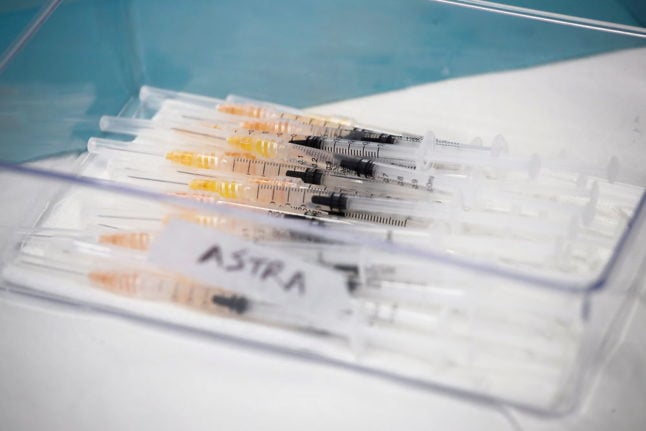The Danish Health Authority and the State Serum Institute yesterday announced that Denmark will completely withdraw the AstraZeneca vaccine from its vaccination programme due to concerns over potential rare, but serious side effects.
Denmark is the only country in the world so far to take that decision.
The vaccination calendar has been pushed back as a result, with the lowest-priority groups now not expected to completely vaccination until late August.
The decision is already being questioned. Two conservative parties have called for the public to be able to decide themselves whether or not they want to accept the AstraZeneca vaccine if they are willing to accept any potential risk.
“It is important that we make use of the vaccines we have if there are Danes who wish to have an AstraZeneca vaccine. Amongst those who have received the first dose there are surely some people who want a second dose and thereby to complete their vaccination,” Conservative political spokesperson Mette Abildgaard told news wire Ritzau.
READ ALSO: Denmark to receive additional doses of Pfizer vaccine in second quarter
Two cases of blood clots, one of which was fatal, have been linked to AstraZeneca vaccinations in Denmark after more than 140,000 people received the jab made by the Anglo-Swedish drugmaker.
People who have received a first dose of the AstraZeneca vaccine in Denmark will now be offered an alternative vaccine, the Danish Health Authority has confirmed.
However, there was no immediate need to re-vaccinate them, director Søren Brostrøm said.
“They were scheduled to be re-vaccinated after 12 weeks. Those 12 weeks have not yet passed. So it is not a question of them waiting for re-vaccination now,” Brostrøm said.
“That is partly because you get very good protection after the first injection (of the AstraZeneca vaccine,” he added.
Libertarian party Liberal Alliance has also called for citizens to be given the opportunity to choose whether they want the vaccine.
“Danes are adult, consenting people who are capable of taking this type of decision on an informed basis. This would give individual vaccinated people more freedom and society a faster route to reopening,” the party’s leader Alex Vanopslagh tweeted.
Combined with potential further delays involving the Johnson & Johnson vaccine, Abildgaard said that “we risk a situation in which we do not finish vaccinating Danes in 2021”.
Meanwhile, unions including the Danish Medical Association and FOA have called for a new plan for front line health care staff after the decision to withdraw AstraZeneca.
The vaccine was used extensively to inoculate health sector workers including doctors, nurses and social care workers. They are now left unsure as to when they will be vaccinated or receive a different vaccine, in the case of those who have already had their first dose.
“This is critical because many amongst our staff at workplaces have had their first injection and if there is a sudden outbreak again at care homes there will be a staff shortage in no time if we don’t ensure staff are vaccinated,” FOA union head Mona Striib told Ritzau.
Plans already appear to be forming for Denmark’s AstraZeneca vaccines to be diverted to other countries.
Both Latvia and the Czech Republic have expressed their interest in purchasing Denmark’s AstraZeneca doses, while WHO Europe Director Hans Kluge told reporters that the Nordic country is examining options for sharing AstraZeneca’s vaccines with poorer nations, Reuters reported.



 Please whitelist us to continue reading.
Please whitelist us to continue reading.
“Two conservative parties have called for the public to be able to decide themselves whether or not they want to accept the AstraZeneca vaccine if they are willing to accept any potential risk.”
Yes for sure , I want my second AstraZeneca dose. Why is the Government forcing me to use another vaccine (eg Pfizer) as second dose? . That is surely MUCH riskier ? – there is no medical evidence I know of that mixing vaccine is recommended as being safe